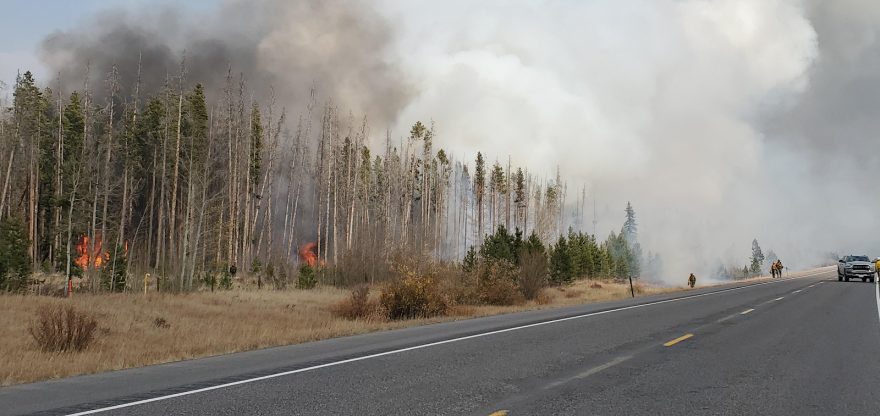Whether you get the help you need after a wildfire may depend on how wealthy or White your neighborhood is, a new paper suggests.Published last month by the non-profit research firm Resources for the Future, the working paper explored whether there's evidence of unequal responsiveness in agency decision-making.
"We looked across the whole western United States, and found this broad empirical pattern that on average, communities that are Whiter, wealthier, tend to be better able to get those fuels management projects from the federal government," said Sarah Anderson, a professor at University of California, Santa Barbara and co-author of the analysis.
Anderson and her colleagues looked specifically at fuel treatments after wildfire events. They found that communities that are mostly White are more likely to receive fuel treatments intended to reduce the risk of future fires. The odds went up even more if the majority of those households were above the poverty line.
"It makes me think about just how persistent and consistent the inequities are," Anderson said.This story was produced by the Mountain West News Bureau, a collaboration between Wyoming Public Media, Boise State Public Radio in Idaho, KUNR in Nevada, the O'Connor Center for the Rocky Mountain West in Montana, KUNC in Colorado, KUNM in New Mexico, with support from affiliate stations across the region. Funding for the Mountain West News Bureau is provided in part by the Corporation for Public Broadcasting.
Copyright 2021 Wyoming Public Radio. To see more, visit Wyoming Public Radio. 9(MDA1MTkyNjA1MDEyNzM1MTQ0ODk3NTA1NA004))





